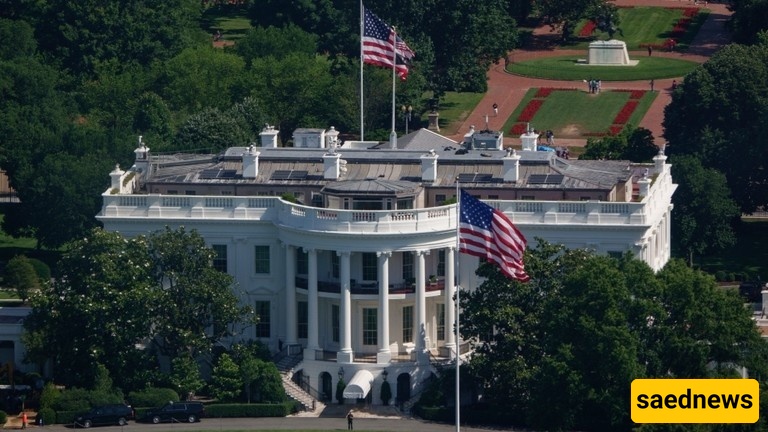SAEDNEWS: The U.S. Department of Defense will gradually close the center countering Russian influence, signaling a shift in Washington’s foreign policy and national security priorities and raising concerns over reduced capacity to counter Russian intelligence.

According to Saed News, quoting Russia Today, the U.S. Department of Defense stated that the specialized center, tasked with countering Russian influence at the international level, will be gradually closed. This decision indicates a shift in Washington’s approach to combating Russian intelligence and propaganda operations and a reassessment of foreign policy and national security priorities. Experts believe this move could have significant consequences for the U.S.’s ability to respond to Russian influence and intelligence activities, as well as affect U.S. European allies and regional partners.
In recent years, the center has played a key role in monitoring Russian intelligence activities and psychological operations in various countries around the world. Its activities included identifying propaganda campaigns, analyzing media and social network data, and providing countermeasures to governments affected by foreign influence. Despite the center’s achievements, U.S. officials argue that its budget and resources could be more effectively managed within the existing structures of the Department of Defense and other intelligence agencies.
Security experts warn that closing this center may create a significant gap in monitoring Russian activities. This concern is especially pronounced in Europe, particularly in the Baltic countries, Poland, and Ukraine, as these nations have been primary targets of Russian intelligence and propaganda operations. They have relied on close cooperation with this center to identify threats and receive intelligence support.
Domestically, some U.S. policy analysts view this decision as part of a broader review of national security policies, accompanied by a shift in focus toward the Middle East, China, and global economic issues. They argue that the government intends to allocate limited resources to areas directly targeting current and future threats to the U.S., although this decision may reduce the ability to respond quickly to Russian influence.
Some critics have warned that closing the center sends a negative signal to European allies. In recent years, the center has served as a point of reliance for many countries in countering Russian intelligence operations, and reducing its activity could undermine allies’ confidence in Washington. European experts believe that reduced intelligence cooperation may provide greater opportunities for Russian interventions in political, economic, and media domains.
At the same time, U.S. officials stress that the center’s tasks will be transferred to other institutions, and efforts will be made to ensure the transition occurs without interruptions or intelligence gaps. This move is part of optimizing internal structures and avoiding redundant operations. However, some critics argue that experience has shown that dedicated and centralized centers play an effective role in quickly identifying threats and responding appropriately, and consolidating activities may reduce the speed and accuracy of responses.
Analysts also note that this decision may reflect a change in the U.S.’s political outlook toward Russia. While the Russian threat remains serious, Washington in recent years has focused more on containing China and addressing economic and technological issues, concentrating resources on emerging priorities. This shift in priorities may indicate a long-term strategy to reduce focus on direct competition with Russia, especially in intelligence operations and media influence.
Nonetheless, some politicians and experts believe that reducing focus on Russia could have dangerous consequences. They warn that Moscow continues to operate globally through intelligence campaigns, influence networks, and social media, and reduced monitoring could enable increased covert operations and influence in domestic and foreign policies of various countries.
This decision has also received wide coverage in international media and analyses. Some outlets view it as a sign of shifting U.S. priorities and reduced direct attention to Russian threats globally. Others see it as part of optimizing intelligence structures, which may have short-term implications but could lead to greater resource efficiency in the long term.
Overall, closing the Center for Countering Russian Influence, although driven by managerial and structural reasons, could bring significant changes in how the U.S. responds to foreign threats. This step indicates a serious reassessment of national security strategy and resource allocation across different threat areas, with notable consequences for U.S. allies and partners in Europe and other regions worldwide.

